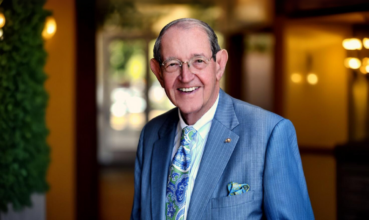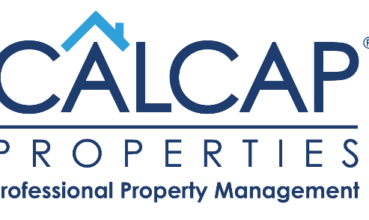In today’s dynamic property management landscape, success hinges on balancing rapid growth with a dedication to quality service. CALCAP Properties stands out as a rising star in this secto...
The True Life Companies' Scott Clark on Creating Attainable Housing in Tight Markets




When Scott Clark discusses housing, he’s careful about his terminology. The founder and CEO of The True Life Companies doesn’t talk about “affordable housing”—a phrase laden with political and regulatory connotations. Instead, he focuses on what he calls “attainable housing.”
“We use the words ‘attainable,’ not ‘affordable,'” Clark explains. “Our definition of attainable is when, in a given market, many buyers—especially first-time buyers—can afford what we deliver.”
This distinction is more than semantic—it’s the foundation of a business model that has positioned The True Life Companies as a significant player in addressing America’s housing shortage by taking a market-driven approach to creating new supply in some of the nation’s tightest housing markets.
From Forced Entrepreneur to Housing Innovator
Clark’s journey into real estate development wasn’t planned. In 1989, the company he worked for filed Chapter 11 bankruptcy just six months after he joined. “I’m unemployable, a serial entrepreneur,” he says with a hint of pride. “I felt it was my time to jump out in the world as a 27-year-old guy.”
While his initial venture into development was circumstantial, Clark’s commitment deepened significantly after 9/11. “I started asking myself what I could do. We were fearful—we didn’t know what was going to happen,” he recalls. “I had to go back to work, and I wanted to create economic opportunity.”
That mission—creating economic opportunity—has since become the company’s explicit purpose. “Today our company’s WHY is to create economic opportunity for all,” Clark says. Since the company’s founding in 2008, this mission has guided the development of a sophisticated operation focused on converting underutilized commercial properties and vacant lots into opportunities for residential construction across nine U.S. regions.
A Systematic Approach to Housing Development
The True Life Companies’ strategy centers on identifying commercial properties and vacant lots suitable for conversion to residential use. “America has an excess of retail strip centers that consumers no longer frequent,” Clark observes. “We’re also over-officed as a country and still trying to figure that out.”
The company takes these underperforming assets—retail strip centers, commercial office buildings, even the occasional winery or dairy—and secures residential approvals. They develop fully designed, shovel-ready sites that are then sold primarily to publicly traded homebuilders.
What distinguishes The True Life Companies is their operational discipline. Projects are often 10 acres or less, usually planned for around 150 units (though some flex smaller or larger). “We like very process-driven investment thesis, where most deals look the same,” Clark says. This positions the firm as a long-term supply chain partner to homebuilders, creating a system that builders can count on for their land-supply needs.
This disciplined approach extends to their acquisition process. “We’ll make offers on around 180 properties this year to bring roughly 15 new ones into the strategy,” Clark notes. “You have to evaluate many properties to find the right ones.” Each region is managed by industry veterans with 20-25 years of experience or more, typically from publicly traded homebuilders, who work with local jurisdictions and brokers to identify opportunities.
The results are compelling: a portfolio of more than 40 assets moving through approval processes, more than 60 successful transactions completed over the years, and more than 5,000 homesites provided to America’s leading homebuilders.
Scale and Diversification as Competitive Advantage
Clark believes his greatest competitive advantage is scale—a departure from traditional real estate development models.
“Your typical real estate deal is a guy like me who calls his five buddies, and they do one project at a time,” he explains. “If it works, everybody’s happy. If it doesn’t, they’re chasing the first guy down.”
The True Life Companies instead spreads investor capital across numerous transactions in different geographical areas, creating a portfolio approach that seeks to minimize risk. “Our investment thesis is like a mutual fund over many geographical areas and over time,” Clark says. “If someone invests in our fund today, that fund distributes money over the entire portfolio—some properties in their final stage, some just beginning, and everywhere in between.”
This model has attracted significant capital. Currently, they’re raising $50 million through their Elite Fund III vehicle,, which is just $9 million away from closing. Once complete, they plan to launch another fund offering, continuing their expansion.
Vertical Integration and American Pride
In recent years, The True Life Companies has expanded vertically. They own TTLC Development Inc., which can deliver properties in whatever form homebuilders request—from raw land with approvals to fully developed sites with infrastructure installed.
In 2020, they took vertical integration a step further by launching Homes Built for America, their homebuilding company that has quickly become the 14th largest in the Bay Area. The patriotic branding reflects Clark’s personal values. “Every Zoom you’ll see me in, you’ll see an American flag,” he says proudly of the homebuilding brand, which uses exclusively American-made products.
This vertical integration serves as both a strategic advantage and a negotiating tool. “When someone goes to buy one of our properties and says they don’t like the price, we can say, ‘No problem. We’ll build it ourselves,'” Clark explains. “It’s created a behavioral tool.”
Market-Based Solutions to Housing Challenges
Clark takes a pragmatic view of housing policy. When discussing government interventions, he expresses concern about programs that designate units as affordable but restrict appreciation.
“My partner says it best,” Clark shares. “Imagine a tenant who pulls up in their BMW. Their friends think they own a house, and they do live in a place that’s theirs, but there is no appreciation. Are you really getting the experience of your number one investment? No.”
For Clark, the fundamental solution is straightforward: increase supply to meet demand. “If we can catch up to where there’s more supply than demand, what happens to the price?” he asks. “Prices moderate.”
This supply-focused approach drives The True Life Companies’ business model. By systematically converting underutilized commercial properties to residential use across multiple markets simultaneously, they’ve created a reproducible model with significant scaling potential.
Clark’s vision extends beyond business success. He serves on the Board of Trustees for ACE Scholarships, which provides educational opportunities for 24,000 K-12 students. This commitment reflects his holistic view of economic opportunity.
“When you get caught up in something that’s bigger than you, it doesn’t feel like work anymore,” he says. “It feels like passion.”
This blend of business innovation and social purpose continues to drive The True Life Companies’ mission: creating economic opportunity through strategic housing development in markets where new supply is most needed.
Similar Articles
Explore similar articles from Our Team of Experts.


“What gets measured gets done. You can’t evaluate what you can’t measure.” – Larry Stone, Santa Clara County Assessor In Silicon Valley, where tech innovations and ...


With over 50% of outstanding mortgages below 3.5%, the traditional resale market has stalled. In this challenging environment, Jome CEO Dan Hnatkovskyy has identified and capitalized on a cr...


In the late 1990s, when Florida was still primarily known as a vacation destination with limited career options, Zev Freidus saw something different: opportunity. Moving from New York with a...


When Scott Clark discusses housing, he’s careful about his terminology. The founder and CEO of The True Life Companies doesn’t talk about “affordable housing”—a phr...




